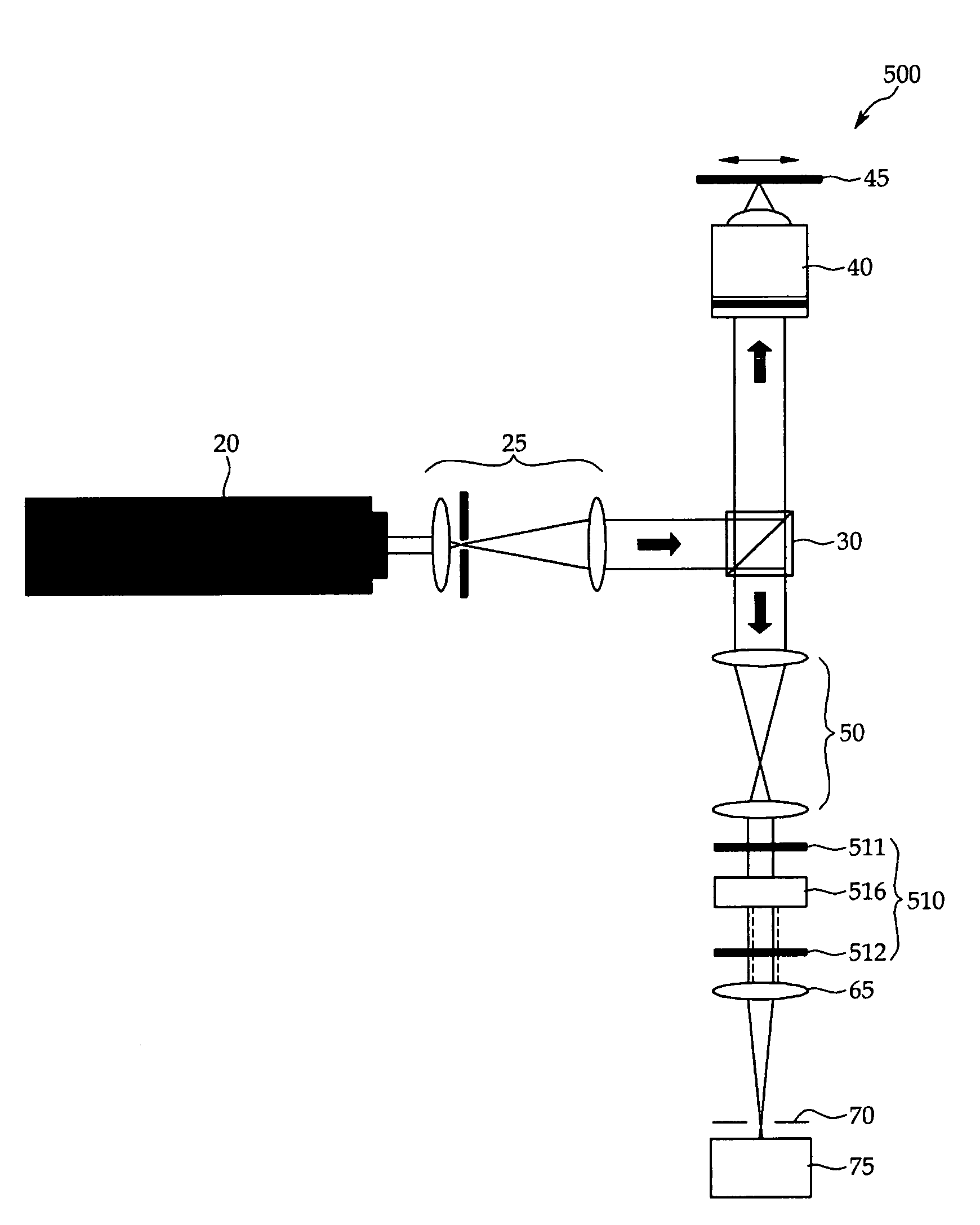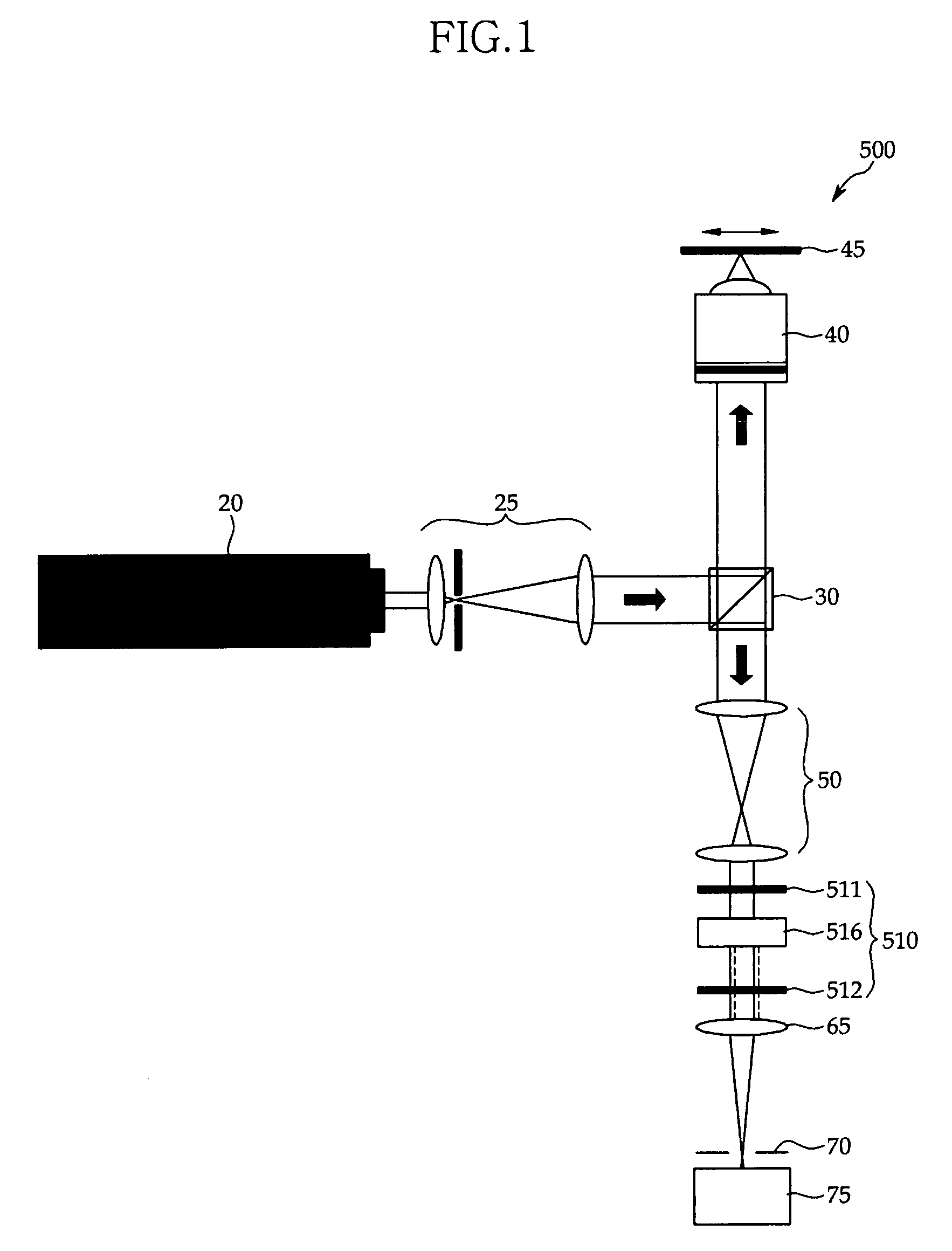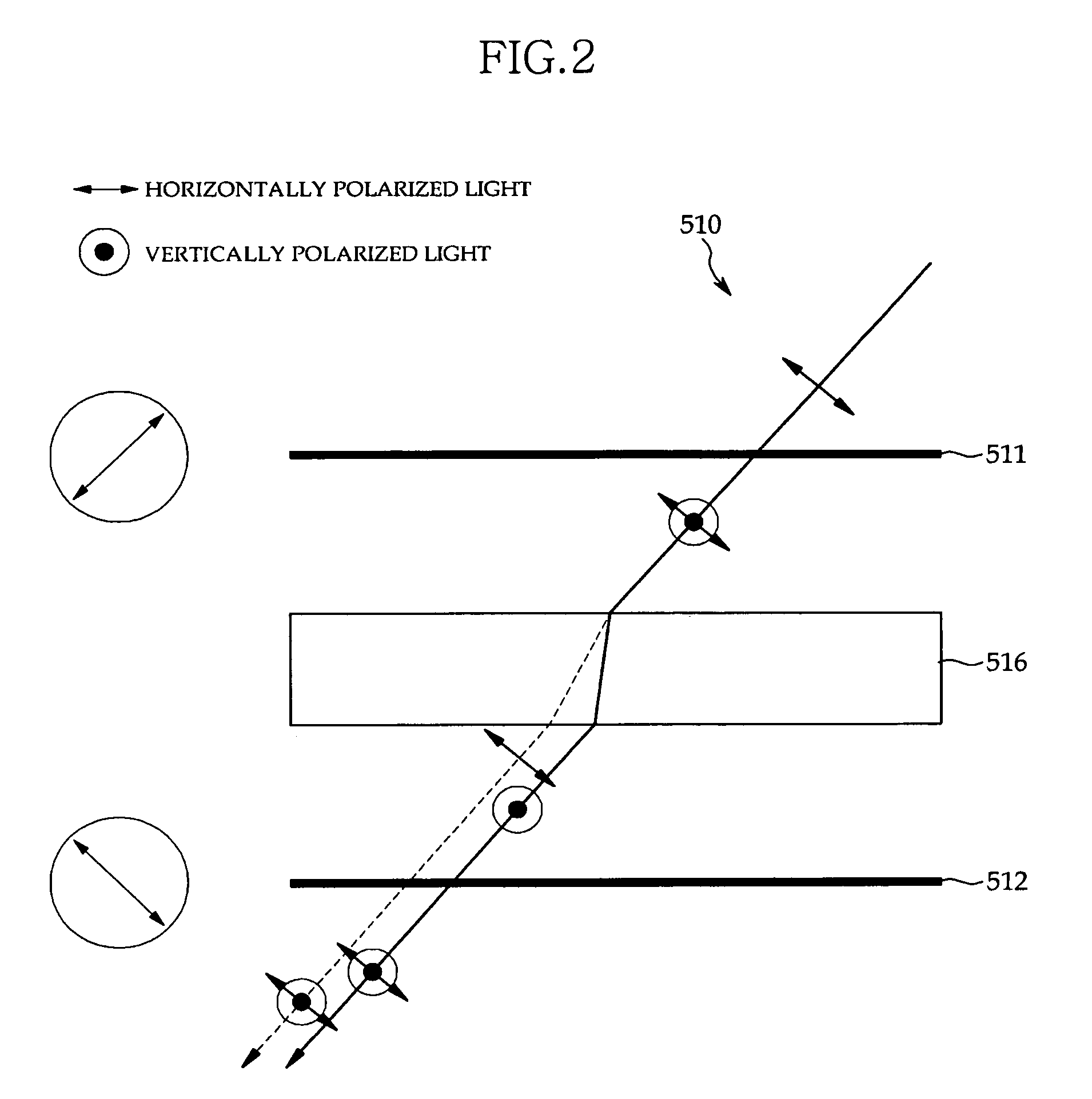Confocal self-interference microscopy from which side lobe has been removed
a self-interference microscopy and side lobe technology, applied in the field ofconfocal self-interference microscopy, can solve the problems of long test time, unsuitable for total inspection, and electron microscopy,
- Summary
- Abstract
- Description
- Claims
- Application Information
AI Technical Summary
Benefits of technology
Problems solved by technology
Method used
Image
Examples
first embodiment
[0053]FIG. 6 shows the construction of a confocal self-interference microscopy 100 according to a first embodiment of the present invention.
[0054]As shown in FIG. 6, the confocal self-interference microscopy 100 according to the first embodiment of the present invention includes an illumination unit 20, a beam expander 25, a beam splitter 30, a condenser 40, a specimen 45, a telescope optical system 50, an iris 60, a focusing lens 65, a pin-hole aperture 70, an image detector 75, and a self-interference optical system 110. The self-interference optical system 110 includes polarizers 111, 112, and 113, and birefringence wave plates 116, 117.
[0055]The illumination unit 20 includes a light source for illuminating the specimen 45. The light source may include a common lighting that emits light having a variety of wavelengths, a laser that emits light having a specific wavelength, or the like.
[0056]The beam expander 25 serves to convert a circular wave, which is irradiated from a point l...
second embodiment
[0094]FIG. 9 shows the construction of a confocal self-interference microscopy 200 according to a second embodiment of the present invention.
[0095]As shown in FIG. 9, the confocal self-interference microscopy 200 according to the second embodiment of the present invention includes an illumination unit 20, a beam expander 25, a beam splitter 30, a condenser 40, a specimen 45, a telescope optical system 50, an iris 60, a focusing lens 65, a pin-hole aperture 70, an image detector 75, and a self-interference optical system 210. The self-interference optical system 210 includes polarizers 211, 212, 213, 214 and 215, and birefringence wave plates 216, 217, 218 and 219.
[0096]The confocal self-interference microscopy 200 according to the present embodiment is the same as the confocal self-interference microscopy 100 of FIG. 6 according to the first embodiment except for the self-interference optical system 210. Description on the redundant constituent elements compared with the first embod...
third embodiment
[0124]FIG. 13 shows the construction of a confocal self-interference microscopy 300 according to a third embodiment of the present invention.
[0125]As shown in FIG. 13, the confocal self-interference microscopy 300 according to the third embodiment of the present invention includes an illumination unit 20, a beam expander 25, a beam splitter 30, a condenser 40, a specimen 45, a telescope optical system 50, a relay optical system 55, an iris 60, a focusing lens 65, a pin-hole aperture 70, a image detector 75, and a self-interference optical system 110. The self-interference optical system 110 includes polarizers 111, 112, and 113, and birefringence wave plates 116, 117.
[0126]The confocal self-interference microscopy 300 according to the present embodiment is the same as the confocal self-interference microscopy 100 of the first embodiment except that the relay optical system 55 is further included between the self-interference optical system 110 and the iris 60. Description on the red...
PUM
 Login to View More
Login to View More Abstract
Description
Claims
Application Information
 Login to View More
Login to View More - R&D
- Intellectual Property
- Life Sciences
- Materials
- Tech Scout
- Unparalleled Data Quality
- Higher Quality Content
- 60% Fewer Hallucinations
Browse by: Latest US Patents, China's latest patents, Technical Efficacy Thesaurus, Application Domain, Technology Topic, Popular Technical Reports.
© 2025 PatSnap. All rights reserved.Legal|Privacy policy|Modern Slavery Act Transparency Statement|Sitemap|About US| Contact US: help@patsnap.com



